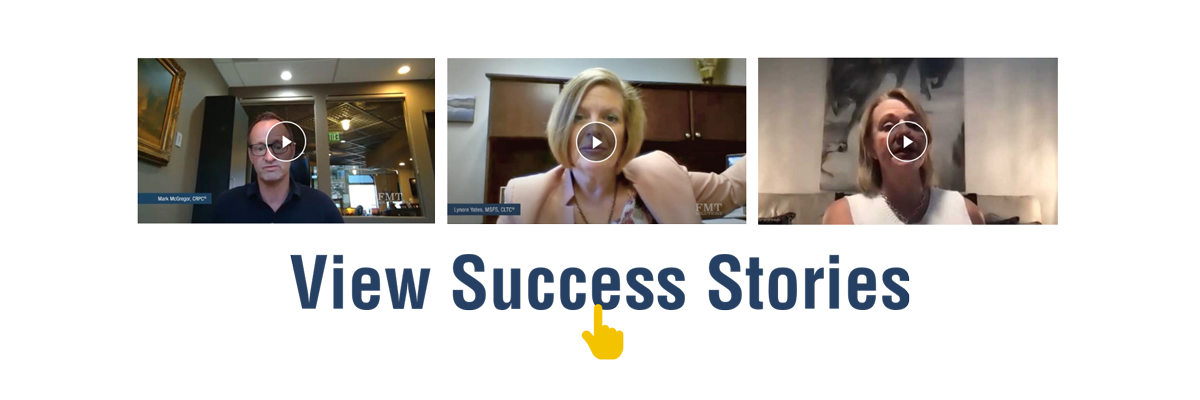Financial planners and advisors are at their best when engaging a local audience directly. Dinner seminars and small-group sales presentations have been the mainstay marketing strategies for the financial services industry for many years. The challenge has always been finding a way to scale these methods up.
Financial education courses allow you to strengthen your local marketing strategy and convert attendees both faster and at higher rates than traditional marketing methods. Rather than holding a one-on-one meeting with every potential prospect, you can engage a room of 10, 15, or even 20 attendees in FINRA-approved, fully compliant courses that are proven to convert at an exceptional rate.
The numbers are in: educational marketing really works
According to research from Conductor, your audience is 131% more likely to convert immediately after consuming educational content. This resonates with the strong results we’ve seen from FMT courses throughout more than 20 years of educational programming. A single course from FMT with an average attendance of 17 will typically result in roughly 10 follow-up appointments and, ultimately, $4M of new AUM in your pipeline.
In part, financial education courses really work because you’re providing real, take-home value to your attendees. A local financial education course gives you the opportunity to demonstrate expertise and establish credibility in a non-sales context so that you can quickly build trust and give attendees a preview of the value of more personalized services.
Financial education as a local marketing strategy
A financial education course in a classroom at a local university or school is the ideal local marketing strategy to reach highly qualified prospects in your area. Curious and motivated individuals will come out to benefit from the instruction of a local expert on financial topics in which they have a real interest. Attendance in your course is a strong pre-qualifier because the self-selected prospects have indicated a need for financial guidance.
FMT provides all of our instructors with an exclusive local marketing area reserved solely for you. Local prospects can find you through a digital course locator that allows them to filter by location. A custom event page for your financial education courses and a simple online platform (mobile-optimized) for course registrations also make it easy to share through your website and local groups on social media. You’ll receive end-to-end RSVP support from the FMT team to get your course set up and packed with an intrigued local audience.
Supplement with online educational programs that have shown decades of success
Online course registration makes it easy and convenient to distribute access and market your course. However, even a local marketing strategy can benefit from virtual or hybrid course options that increasingly appeal to the financial services audience.
It’s been proven for decades that online education courses have shown “phenomenally high ROI” over traditional marketing campaigns, according to an independent industry study. Among other findings, individuals who complete online courses are known to be:
- 29x more likely to buy your product vs. traditional media advertising
- 5x more likely to buy your product vs. direct marketing
- Satisfied with their experience 97% of the time
- 94% more favorable in their perception of your brand following the course
- Likely to purchase a product as a result of their experience about 20% of the time
Courses taught through the FMT platform have demonstrated long-running success in funneling quality leads into your pipeline. One satisfied financial advisor and FMT course instructor, Brenda Dozier, reported that “The average per class is a couple million AUM. Sometimes up to $3 million to $5 million. By educating first, the clients will follow.”
We couldn’t agree more. Upgrade your local marketing strategy with in-person financial education courses as well as hybrid or virtual options to scale up your lead generation and grow your business quickly. Reach out to the FMT team today to learn more about launching your own local financial education course offerings.

This article was originally published in May 2022. Updated February 2023.